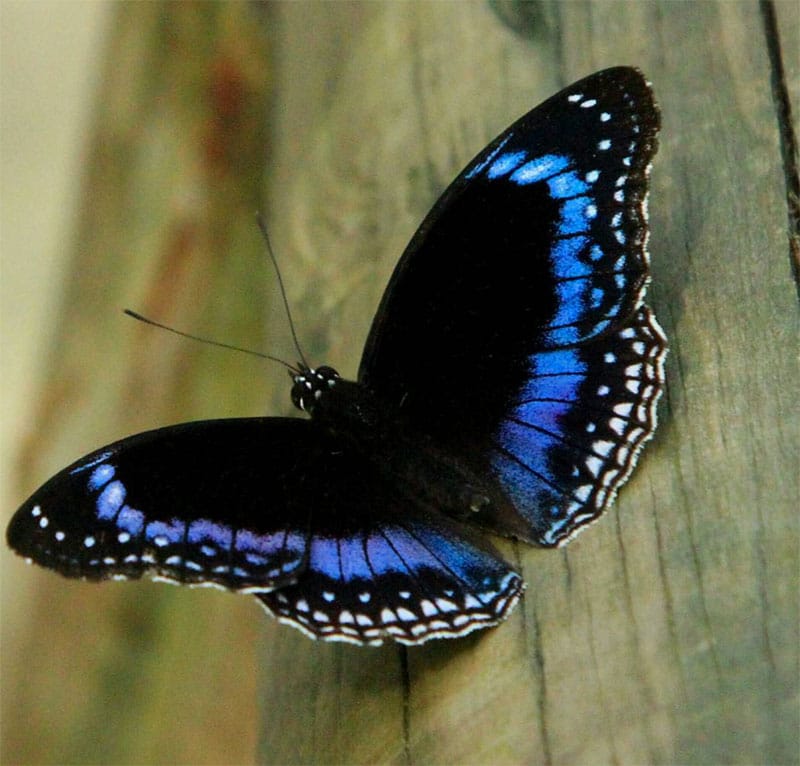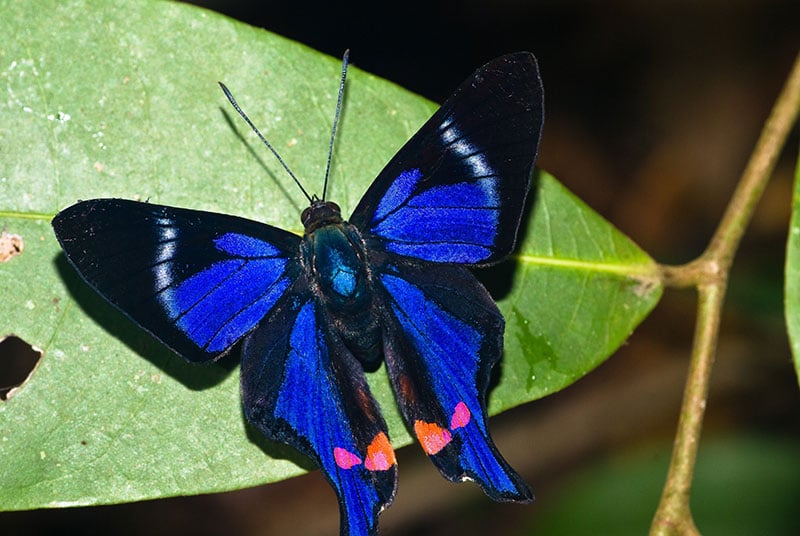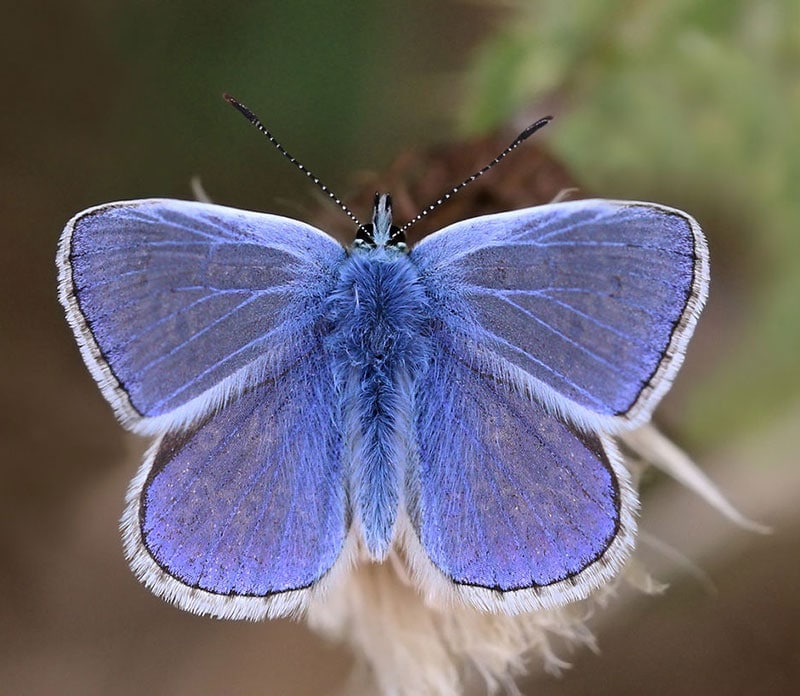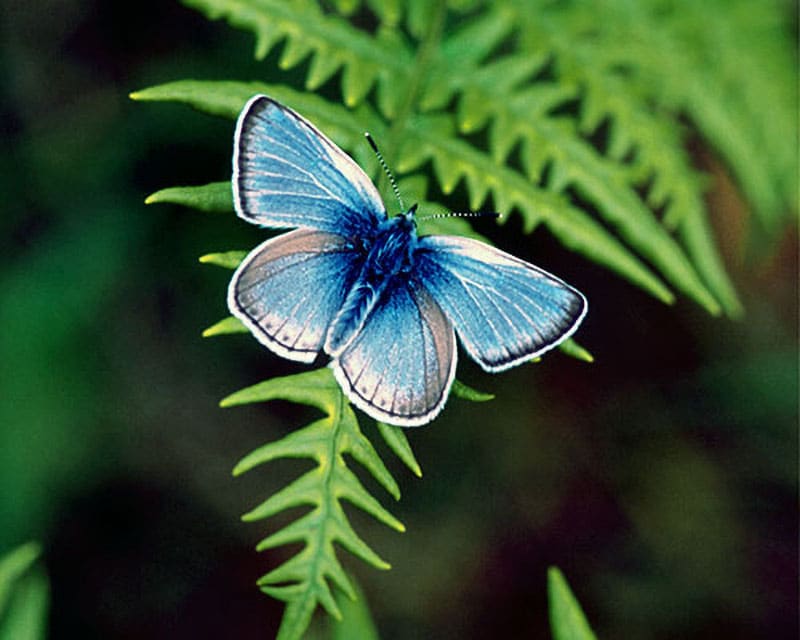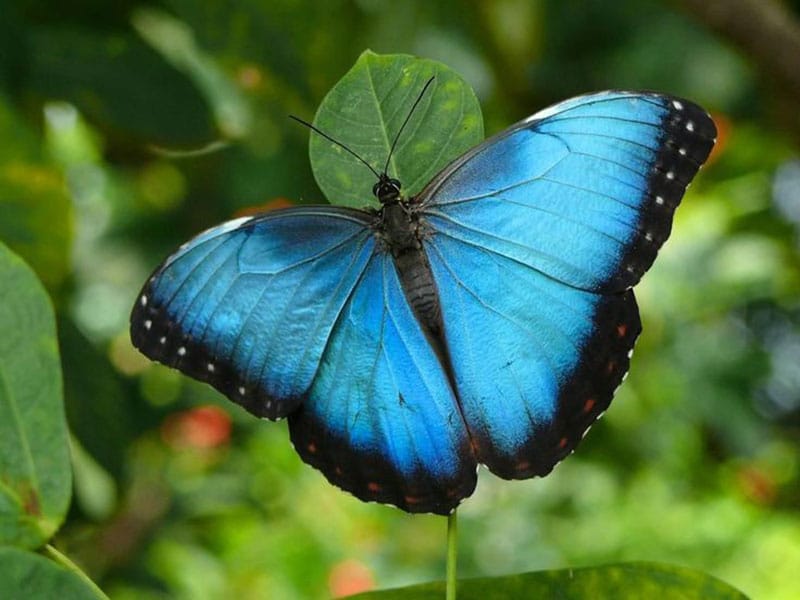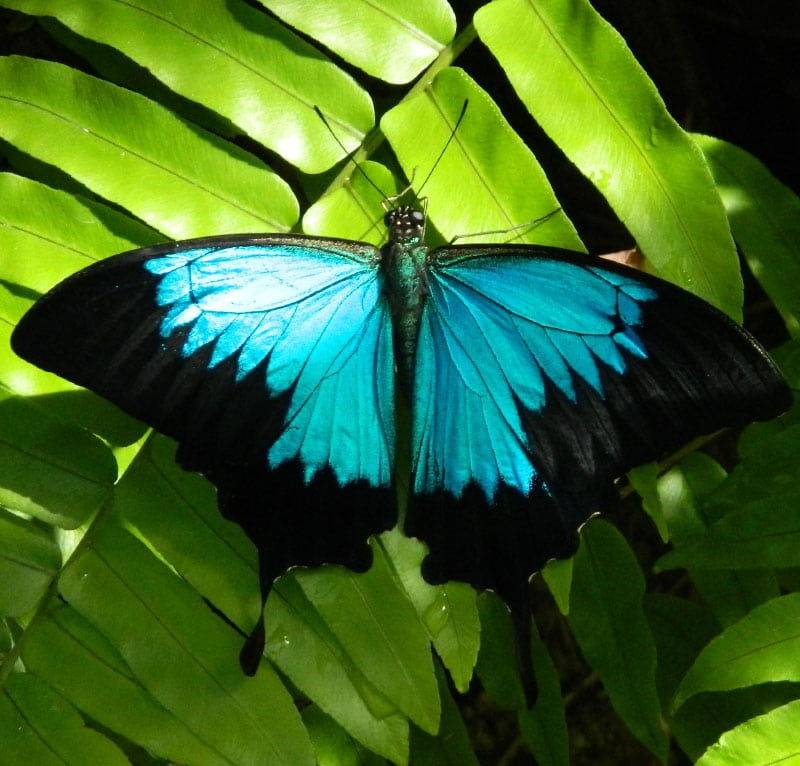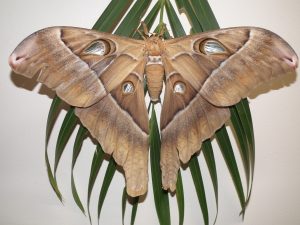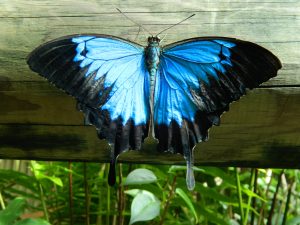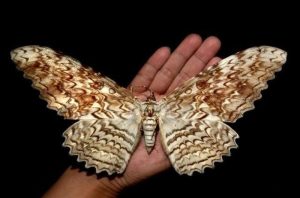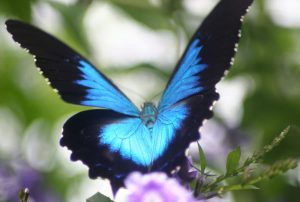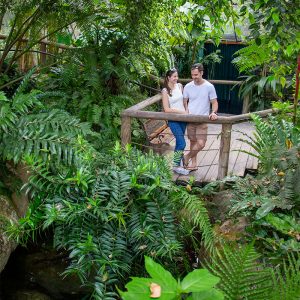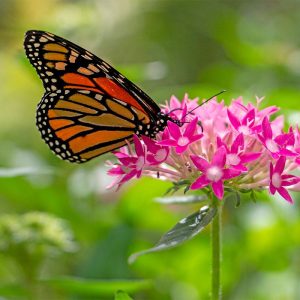Blue is the rarest occurring colour in nature, with no true blue pigments in plants. In some ways, blue butterflies are natures way of completing the colour spectrum.
From South American wonders to local Tropical icons, here’s some stunning blue butterflies from around the world…
Australia: Blue Banded Eggfly (Hypolimnas Alimena)
The Blue Banded Eggfly is found in Australia, New Guinea, Indonesia and the Solomon Islands. It is commonly spotted in Tropical North Queensland. It is more likely to be active at night.
They can be distinguished by their black hue, vibrant blue band across each wing, a double row of white spots and scalloped-edge wings.
Pop into the Australian Butterfly Sanctuary to meet the Blue Banded Eggfly!
South & Central America: Rhetus Periander
(Photo Source: http://www.baltana.com)
This vibrant blue butterfly can be found in Southern Mexico and Ecuador in coastal areas. With a wingspan of up to 60mm in males, this beautiful butterfly is incredibly rare. It is mostly spotted in close proximity to streams or rivers or through cloudforest habitats.
British Isles & Ireland: Common Blue (Polyommatus Icarus)
(Photo source: en.wikipedia.com)
The Common Blue dwells in meadows, grasslands and quarries throughout Ireland and the United Kingdom. It can also be found throughout North Africa, the Canary Islands and elsewhere in Europe.
One of Ireland’s most colourful butterfly, the Common Blue male is a beautiful shiny blue with a brownish border and white fringing at the edges of the wings. The female, on the other hand, is brown with orange spots and a slight blue dusting.
South America to South USA: Red Cracker (Hamadryas amphinome)
(Photo source: http://www.sanjuandelaisla.com)
Cracker butterflies get their name from the “cracking” sound they produce with their wings in order to protect their territory. The sound is can be heard by humans from up to 30 metres away!
The unique pattern on their wings closely resembles bark and their underwing colours allow them to closely camouflage when they are perching during the day.
Unlike many butterflies who feed on nectar, cracker butterflies have a very unusual diet. These critters feed on rotting fruit, animal dung and sap. Tasty!
Oregon, USA: Fender’s Blue Butterfly (Lcaricia Icarioides Fenderi)
(Photo source: xerces.org)
This endangered butterfly is only found in the Willamette Valley in Oregan. Although it once thrived, this butterfly is now rare due farmland and other dwellings on the prairies in which it once bred.
It was thought that the Fender’s Blue Butterfly was extinct until it was rediscovered in 1989. Luckily, a recovery plan was published in 2010 which aims to protect this stunning butterfly.
This small butterfly has a small wingspan of one inch. Like many butterfly species, gender can be determined by colour. Males are a lush blue hue, whereas females are brown in colour. Both sexes have underwings that are a cream-tan colour with black spots.
South & Central America: Blue Morpho Butterfly
(Photo source: animalshine.com)
With a wingspan between 5 and 8 inches, the Blue Morpho Butterfly is one of the largest in the world.
Although the iridescent blue wings are undoubtedly striking, the Blue Morpho is able to protect itself from predators by quickly opening and closing its wings. This makes it hard for predators to track. The butterfly’s outer wings are brownish in colour and have six “eyes”, which trick predators into thinking it’s a larger creature.
Australia: Ulysses Butterfly (Pipilio Ulysses Joesa)
The electric blue Ulysses Butterfly is a rainforest icon and can sometimes be spotted in tropical rainforest areas.
With a wingspan of 5.5 inches, this large butterfly can be easily spotted from far away. A dazzling sight to behold, the Ulysses has unfortunately declined in numbers in the past few years.
Visit the Australian Butterfly sanctuary to view a rainbow of free-flight butterflies.

